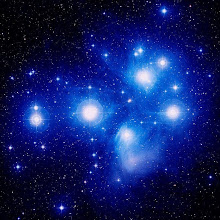
On Wednesday, the world said goodbye to perhaps the most famous science fiction writer of all time, Arthur C. Clarke, who passed away in his adopted country of Sri Lanka at the age of 90. Although he was most well known for scribing the novel that was the basis for the classic film 2001: A Space Odyssey, Clarke had a prolific career both as a writer and as a promoter of human space endeavors.
Clarke was a space fan from an early age. After discovering a science fiction magazine at 13, he was hooked for life. He promptly joined the British Interplanetary Society, whose members believed that space travel would be commonplace in short order. After serving in World War II as a Royal Air Force officer, Clarke dabbled in aeronautics and engineering. But his career as a writer took over in 1945, when he published a story in the same sci-fi magazine he'd fawned over as a kid. The rest, as they say, is history.
On top of his writing, Clarke had a habit of making crazy predictions about how the world would be bettered by technology. Some of these, such as the use of geostationary satellites for telecommunications, actually came true. But the vast majority—like his conjecture that cold fusion (nuclear reactions in room temperature) would become reality by the first few years of the 21st century—were no more than Jetsons fantasies. Clarke was a believer in the paranormal for much of his life, although he claimed to have given up on pseudoscience in his golden years. Old habits apparently die hard, though: Several years ago, my research for an article on alien theories revealed that he believed Mars to be populated with lush trees.
Crazy though it sometimes seemed, Clarke's visionary imagination served for many years as an important inspiration for scientific endeavors both real (like the International Space Station) and fictional (Star Trek creator Gene Rodenberry was a big fan). Later in his life, Clarke racked up quite a few awards and honors, including British knighthood, his own asteroid (4923 Clarke), and even his own dinosaur, Serendipaceratops arthurcclarkei! Needless to say, Clarke is one space cadet who will be sorely missed and not soon forgotten. &infin

No comments:
Post a Comment
Note: Only a member of this blog may post a comment.